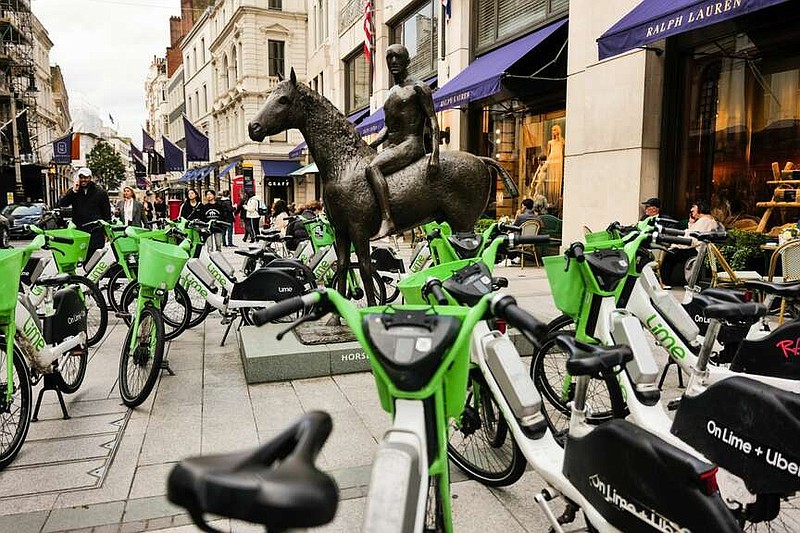Lime, the operator of a shared electric bike and scooter network backed by Uber Technologies Inc., is planning to invest more than $55 million this year to expand its global fleet. The San Francisco-based company will add more than 30,000 net-new bikes across North America, Europe and Australia while also replacing aging ones, Chief Executive Officer Wayne Ting said in an interview. It's also looking to return to Greece and Mexico -- markets that it had exited during the pandemic, he said, and is exploring new business lines such as advertising deals and a new vehicle type for its shared fleet.
The company separately reported a 32% increase in gross bookings in 2023 from a year earlier, totaling a record $616 million. Its adjusted earnings before interest, taxes, depreciation and amortization gained by more than 500%, surpassing $90 million.
Lime, which has a fleet of some 200,000 bikes and scooters, is expanding even as its rivals in the United States have struggled to stay afloat. Many are looking to offload operations now that the era of low interest rates and easily accessible venture-capital funding is over. Stronger regulations of two-wheelers and shifting commuting trends have also been headwinds for the industry.
Late last year, scooter company Bird Global Inc. went bankrupt. Another peer, Superpedestrian, is shutting U.S. operations and weighing the sale of its European business, according to TechCrunch. Lyft Inc., which bought Citi Bike in 2018, was looking for a strategic partner, or to sell its bike-share business.
Lime is, meanwhile, "at that inflection point where we can scale up the business without having to make a ton more R&D investment," Ting said. "Our software is already made, our hardware is already developed. We're not increasing the fixed costs, so profitability grows at a much faster pace. And I think we're going to continue see that play out for a couple of years."
Uber threw Lime a lifeline in 2020 when it was struggling through pandemic-induced lockdowns. Uber, which held a roughly 29% stake as of late last year, led a $170 million investment round for Lime back then, selling its Jump bike-sharing business operations to Lime as part of the deal. Lime was valued at about $510 million at the time, people familiar with the terms said, asking not to be identified because the terms were private.
Today, about 60% of Lime's business comes from outside of the U.S., in cities where the infrastructure is less car-centric and more bike-friendly. The company's major bike markets include Sydney, Rome, Seattle, London, Milan and Paris -- the latter of which banned e-scooters but expanded an e-bike fleet cap by 5,000 ahead of the summer Olympics this year.
Lime is more broadly positioning itself for an initial public offering. It first floated IPO plans in 2021 before U.S. public equity markets dried up. Late last year, it hired Ann Gugino, former chief financial officer of the U.S. pizza chain Papa John's International Inc., as chief financial officer to build the necessary internal controls before going public.
"We're doing everything we can to ensure that we are ready internally, and then we're just going to wait to see when is the right macro environment to consider an IPO," Ting said. "Much of this is outside of our control."

